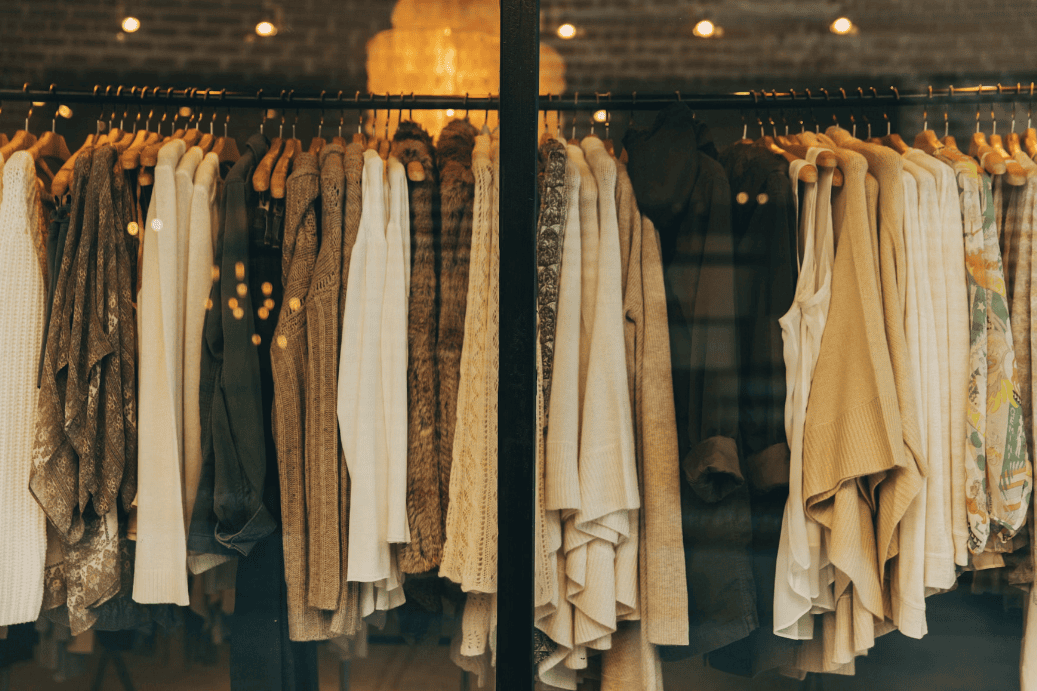
In recent years, the harsh realities of the fashion industry have come to the forefront of global communities. From textile production, garment manufacturing, supply chain management and distribution, fashion leaves an indelible mark on the planet.
In this article, we delve into the most pressing issues facing the sector today: the rise of consumer demand for eco-conscious brands, and the initiatives that are driving progression towards a more sustainable route forward.
The ESG challenges at the centre of the industry
The fashion industry generates a staggering 92 million tonnes of textile waste each year, contributing to overflowing landfills, pollution and resource depletion. Additionally, the environmental impact of textile production accounts for 20% of global water pollution and 10% of global carbon emissions.
Ethical issues continue to be an issue of great concern, from exploitative labour practices to poor working conditions. There are an estimated 46 million people enslaved around the world today, with 21 million being victims of forced labour, and the fashion industry represents a major contributor to that number.
The prevalence of interconnected social and environmental issues across the sector indicate an urgent need for systemic change, and consumer demand is one of the major drivers.
The rise of consumer demand
With growing public awareness toward the stark environmental and social challenges at the centre of the global fashion industry, consumers are demanding greater transparency from brands, enabling conscious purchasing decisions.
55% of shoppers would be willing to pay more for sustainable products, and 44% of those surveyed say sustainability affects whether they buy a product.
This trend is particularly pronounced among younger generations, with Gen Z and millennials leading the charge for eco-friendly and ethically produced products.
As a result, brands are under increasing pressure to align with consumer values, reshaping the fashion landscape. To comply with the needs of the market, brands are adopting transparent supply chains, investing in sustainable materials and prioritising ethical labour practices. Brands looking to future proof and mitigate risk need to be making strategic changes to their business models and products.
Fashion brands leading the charge
Large organisations, such as The White Company, are committed to building a more sustainable legacy. As their sustainability partner, we recently helped them achieve B Corp certification, a testament to their dedication to ongoing impact.
Patagonia, a trailblazer for sustainable fashion, is a certified Fair Trade company, ensuring fair wages and safe working conditions for workers in its supply chain. They also have stated that 100% of their virgin cotton is grown organically and 100% of their down is responsibly sourced.
Another forward-thinking brand that we have the pleasure of partnering with, Me + Em, focuses on long-lasting aesthetic appeal with the highest quality fabrics. As a member of the Ethical Trade Initiative, they have adopted its internationally recognised base code of labour standards as the foundations of their own code of conduct, specifically relating to protecting and promoting workers’ rights. They also recycle or donate all of their fabrics and trims to art schools and colleges, avoiding waste going to landfill.
Everlane is another pioneering example of transparency, with its three sustainability pillars: Keep Earth Clean, Keep Earth Cool and Do Right By People. With 72% of their Tier 1 manufacturing partners having additional social or environmental certifications that go above and beyond industry standards, their Black Friday Fund has also raised more than 1.5 million dollars to support their partners cleaning up the fashion industry.
These leading brands are signifying that change is both essential and possible for the future of the fashion industry, providing customers with transparency, accountability and ambition to achieve lasting change for society and the planet.

Transitioning the industry to a more sustainable future
There are a number of groups and initiatives driving change forward within fashion, collaborating for collective action, creating targets, and inspiring action to keep momentum up and pave the path for others to follow suit.
- The UN Alliance for Sustainable Fashion
The UN Alliance for Sustainable Fashion represents a pioneering initiative aimed at creating transformative change within the global fashion industry.
This collaborative platform brings together key stakeholders from across the fashion ecosystem, including governments, businesses, academics and civil society to drive collective action towards a more sustainable future for the industry.
The Alliance focuses on addressing the social, environmental and economic challenges inherent to the fashion industry, aligning to the United Nations’ Sustainable Development Goals. Through initiatives such as the Charter for Climate Action and the Sustainable Fashion Charter, the Alliance provides a framework for guiding industry-wide efforts to reduce carbon emissions, promote ethical labour practices, and advance circularity.
By fostering collaboration and knowledge sharing, the UN Alliance for Sustainable Fashion serves as a powerful catalyst for innovation and progress, laying the foundation for a more sustainable and equitable future for fashion.
- B Corp
B Corp certification serves as a powerful driver for lasting change across all sectors and industries. Its holistic environmental and social lens makes it particularly powerful for the fashion industry, creating both transparency and accountability for consumer-facing brands to use and communicate with their stakeholders.
A certified B Corp is a business that meets exceptional standards of social and environmental performance. By undergoing the B Impact Assessment, the free online management tool used to measure, understand and improve their impact, companies can set themselves a clear pathway for social and environmental change.
The commitment to certifying and maintaining the standards across B Corp’s five impact areas – Governance, Workers, Community, Environment and Customers – not only fosters trust and loyalty among customers, but empowers fashion brands to align their values with business practices, committing to people and planet alongside profit.
Moreover, the power of B Corp certification incentivises other companies to follow suit, catalysing systemic change across the industry.
Leading the shift with Seismic
Ultimately, there is a significant need to do more in an industry that accounts for a huge portion of the planet’s resources and participates in the staggering number for modern day slavery.
To help tackle this crisis, Seismic can support your business to create a robust and effective sustainability strategy. With in-house fashion experts, our team makes a complex journey simple, with clearly defined targets and actionable steps forward.
Speak to our fashion experts to make the shift towards greater impact.


